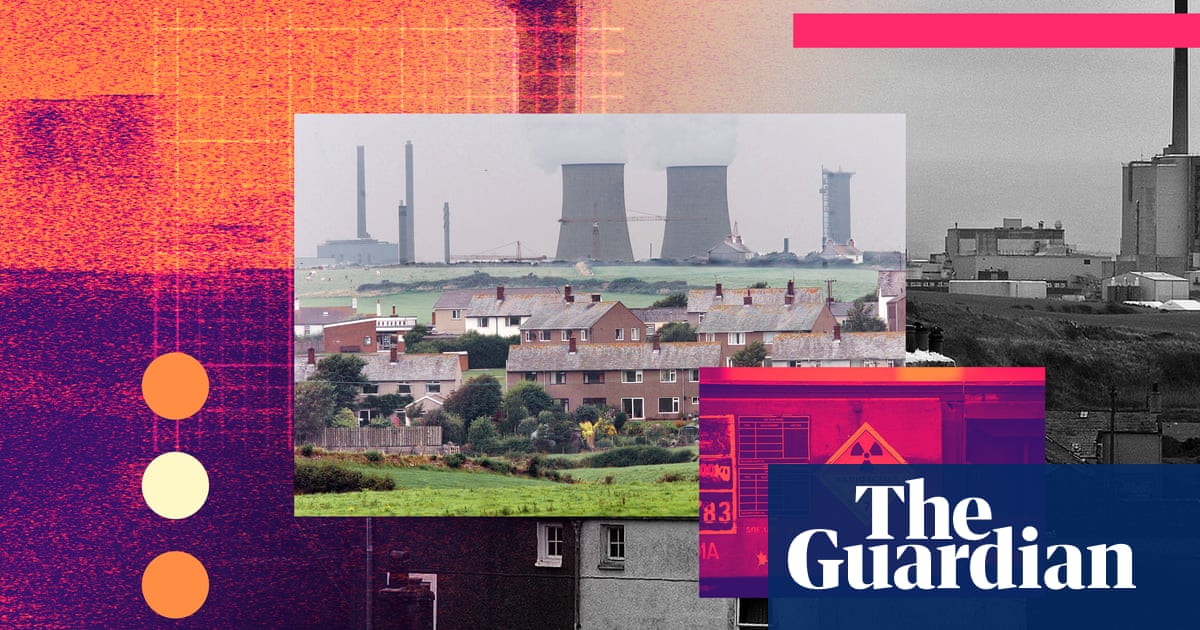Sellafield, Europe’s most hazardous nuclear site, has a worsening leak from a huge silo of radioactive waste that could pose a risk to the public, the Guardian can reveal.
Concerns over safety at the crumbling building, as well as cracks in a reservoir of toxic sludge known as B30, have caused diplomatic tensions with countries including the US, Norway and Ireland, which fear Sellafield has failed to get a grip of the problems.
For those who think this is a UK issue, look up La Hague, which has a similar facility with similar problems.
And yet I keep seeing push for nuclear energy in the news stating it as ‘clean’ energy ? Is it clean or dangerously radioactive ? They outa set their minds in the news. I personally despise creating pollution that will last longer than a generation. Why put onto others the repercussions of our own comfort ?
The same people calling nuclear clean argue that solar and wind is polluting. I would rather have the pollution of a solar and wind production in my backyard than nuclear waste.
From my understanding, it’s considered clean by comparison to fossil fuels in that it’s easier to contain the byproducts that nuclear produces since they are primarily solid and liquid waste compared to the additional gaseous waste that fossil fuels make. The problem is in the potency of the pollution, the length of time that it needs to be stored, and while I said that it was fairly easy to store, that doesn’t stop storage facilities from doing what the lowest bidder tends to do which is perform below the minimum expectation. The quantity of the waste is typically lower by tonnage compared to fossil fuels and a good chunk of nuclear waste is in the form of contaminated safety equipment that has reached the end of it’s expected life cycle.
Something has to go horribly wrong for dangerous nuclear contamination to happen, but that’s not to say that things can and have gone horribly wrong.
Problems like this are just handwaved away because nuclear waste could in theory be safely disposed of. In the cases where is hasn’t been the pro nuclear guys just say “well if they did it properly it wouldn’t be an issue”, which might be true but if countries like the UK, US and Germany have had issues, you have to ask if its really realistic to assume that the problem will always be dealt with properly.
The other answer is some future tech reactor that hasn’t been built on any real world scale that runs on nuclear waste and produces none. Great idea in theory but how does it compare with renewables in terms of cost?
The frustrating thing is that, in classic UK fashion, these problems are almost entirely self-inflicted by privatisation, with the company responsible trying to do it as cheaply as possible, even if that means half-assing it.
This exact same site was in the news yesterday(!) as well for having long term cyber security vulnerabilities.
This site isn’t one of the safer newer types, it’s an old build that was used for weapons as well, and it’s currently in the process of being decommissioned. Nuclear isn’t perfect by any means, but it can be improved to a point where it’s one of several acceptable options and it is gradually maturing.
A big problem with nuclear has been the highly bespoke nature of each build. Increased standardisation of designs will improve safety as well as cost.
You are right that the news doesn’t really have a sensible take. But we know reasonable and consistent information isn’t where their profit motives are aligned.
If we play “I would rather”, I would rather have a nuclear waste facility than a copper, lithium or cobalt mine in my garden.
The transition to renewables energy will requires A LOT of mining and mines are awful for the environment.
At least with nuclear waste we can try to contain it, mining waste is just left in the open and pollute the land and water with heavy metals.
We don’t talk much about the environmental impact of mining because it mostly impact low income country and there is no clean mining, so the only way to reduce the impact of mining is to reduce our consumption, but no one wants to hear about that. Globally we prefer pretending that we can transform our consumption to be sustainable
The only clean energy is the one that we don’t use, after that there is just a list of less worse alternatives, nuclear, solar and wind are on the “less worse” category but they still have a terrible impact on the environment.
I don’t think it’s one or the other. Nuclear is part of a comprehensive green energy plan. That’s because nuclear is the only thing that can currently fill the gap left by coal or gas. Solar and wind need extensive battery infrastructure to be effective in this regard. Mass battery plants will also cause some form of generational waste. Coal and gas cause massive generational waste and coal ash is radioactive.
Obviously solar and wind are going to be safer but nuclear being safe and dangerously radioactive is both true and depends on how well the plant is managed and how old it is. Nuclear accidents rightfully get a lot of coverage but a well run reactor is pretty clean. How does the environmental damage stack up in kW/damage vs coal and oil?
Hydro is pretty great though. And I guess fusion if that ever goes anywhere.
Nuclear Reactors have a certain Limit on Powercycles. While you can power up an down with up to 10%/min that puts a huge amount of stress on all parts which leads to cracks and leaks. So you can’t actually replace the flexibility of gas powerplants with nuclear, because the risk associated with leaks is so much worse.
That’s fair, I was kinda thinking base power generation by nuclear and solar/wind for peaks. But the solar and wind probably wouldn’t be reliable enough so would still need some gas in the mix.
The reliability issue of regenerative energy can be lessend with better grids, because somwhere is always wind or sun. And then adding different storage technologies like battery, pressurised air or thermal storage should get us to a reliable power supply without emissions in the next decades.
Hydro is kinda devastating to any environment it touches if the scale is large enough. I think that it’s usually pretty good on a micro scale that doesn’t have to throttle waterways and flood others.
For this reason, tidal hydro is great. All of the benefits of hydro, none of the environmental ruin of dams.
They are obviously gonna be much less efficient than dams but there’s so much coast line to be taken advantage of.
https://www.eia.gov/energyexplained/hydropower/tidal-power.php
It’s still fossil energy, except that the pollution doesn’t get into the air.
What fossil is uranium made from?
Come on, you know what they meant. It’s “fossil” as a shorthand for “non-renewable”
My bad, sorry.




